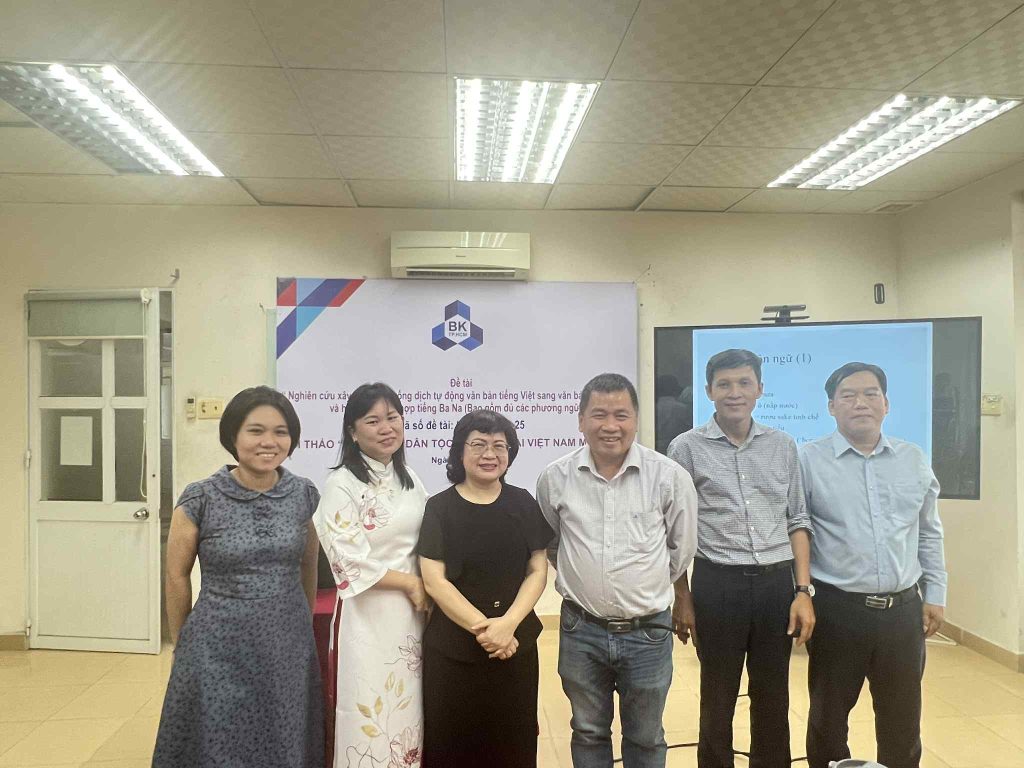On August 30, 2025, under the guidance of Assoc. Prof. Quản Thành Thơ, a workshop titled “Minority Languages in Vietnam” was held, covering profound and expansive topics. The event not only focused on introducing and preserving cultural values but also opened up new avenues for research, allowing attendees to gain a deeper understanding of the diversity and richness of these languages. The topics presented at the workshop offered fresh perspectives on minority languages, while also promoting diversity in linguistic research.
From the initial reports, such as “Phonetic Features of the Ba Na Language by Dialect” to “Linguistic Features of the Châu Ro Language”, experts clarified the linguistic characteristics of each language system, emphasizing the richness of dialects within ethnic groups. In addition to exploring linguistic features, the workshop highlighted the connection between language and culture, especially in reports like “Cultural Characteristics in Cham Language” and “The Relationship between Japanese and Ainu Languages”. Another noteworthy report was “The Vowel System in Classical Japanese”, which studied the development and transformation of the vowel system in Japanese across historical periods. The report on “The Poetic Quality in the Then Cô Songs of the Tây People” opened up a research space for the integration of music and language in folk culture. These reports paved the way for studies on the relationship between language and cultural elements, helping us better understand the interaction between language and society. The entire auditorium listened attentively, asked questions, and engaged in discussions, creating a vibrant, connected, and inspiring academic atmosphere.

Additionally, the program also mentioned a presentation by a URA member on an AI application in healthcare. The topic was the prediction of Dyslexia, a condition that makes it difficult to recognize letters through reading and writing. What stood out in the group’s new research direction was the combination of eye tracking and EEG to identify whether a person is at risk of Dyslexia. A notable point of the seminar was the discussion on handling datasets when processing massive data from both eye tracking and EEG sources.
The workshop successfully created a space for idea exchange among researchers, lecturers, and students, contributing to a deeper understanding of minority languages in Vietnam and AI in Healthcare. For URA members, it was more than just a learning opportunity; it was a journey that expanded horizons and sparked new ideas. Looking ahead, URA aspires to continue curating such inspiring events, ensuring that each gathering becomes not only a space for knowledge but also a catalyst for meaningful discovery and innovation.